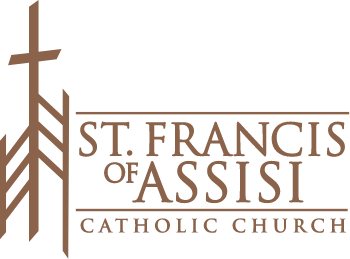As we near the beginning of November we as a parish are, once again, preparing to lift our deceased loved ones up in prayer. Praying for the dead has been a Judeo-Christian principle outlined early in the book of Maccabees: “Therefore [Judas Maccabeus] made atonement for the dead, that they might be delivered from their sin (2 Mac 12:46).” As the Catechism of the Catholic Church reminds us, “From the beginning the Church has honored the memory of the dead and offered prayers in suffrage for them, above all the Eucharistic sacrifice, so that, thus purified, they may attain the beatific vision of God. The Church also commends almsgiving, indulgences, and works of penance undertaken on behalf of the dead (#1032).”
There are four General Grants of Indulgences, or normal, daily, Christian disciplines that are indulgences:
1. Raising the mind to God with humble trust when performing one’s duties and bearing life’s difficulty, and adding, at least mentally, some pious invocation.
2. Devoting oneself or one’s goods compassionately in a spirit of faith to the service of one’s brothers and
sisters in need.
3. Freely abstaining in a spirit of penance from something licit and pleasant.
4. Freely giving open witness to one’s faith before others in particular circumstances of everyday life.
Of the many indulgences recommended by the Church some are partial, meaning that they remove part of the time a person may spend in purgatory. Partial indulgences can be acquired as often as one desires. But such indulgences are given under certain conditions. One must:
• Be in a state of grace (free of mortal sin) and not excommunicated.
• Have a contrite heart for even venial sin.
• Intend to receive the indulgence.
• Perform the prescribed action of the indulgence.
Other indulgences, due to the honor and dignity of the Christian action, are plenary. Plenary indulgences can be acquired only once each day for the same work (unless one is at the moment before death, in which case one may acquire the Apostolic Pardon). Plenary indulgences are much more demanding than partial indulgences. In addition to the conditions for a partial indulgence they also require one to:
• Receive sacramental confession within a reasonable amount of time (within one month) of the indulgence.
A single sacramental confession suffices for gaining several plenary indulgences.
• Receive Eucharistic Communion on the same day as the indulgence.
• Pray for the intention of the Sovereign Pontiff. The condition of praying for the intention of the Sovereign Pontiff is fully satisfied by reciting one Our Father and one Hail Mary; nevertheless, each one is free to recite any other prayer according to his piety and devotion.
• It is further required that all attachment to sin, even venial sin, be absent. If the latter disposition is in any way less than perfect or if the prescribed other conditions are not fulfilled, the indulgence will be partial only.
Throughout the course of the Novena for the Deceased, each day will offer one Plenary Indulgence which can be offered up for the intention of a deceased loved one. These indulgences will be one of the following: ½ Hour of Scripture Meditation, Public Rosary, Stations of the Cross, or ½ Hour of Adoration. Please consider joining us for this wonderful period of Grace and Mercy.
Fr. Jarrod Lies, Pastor

